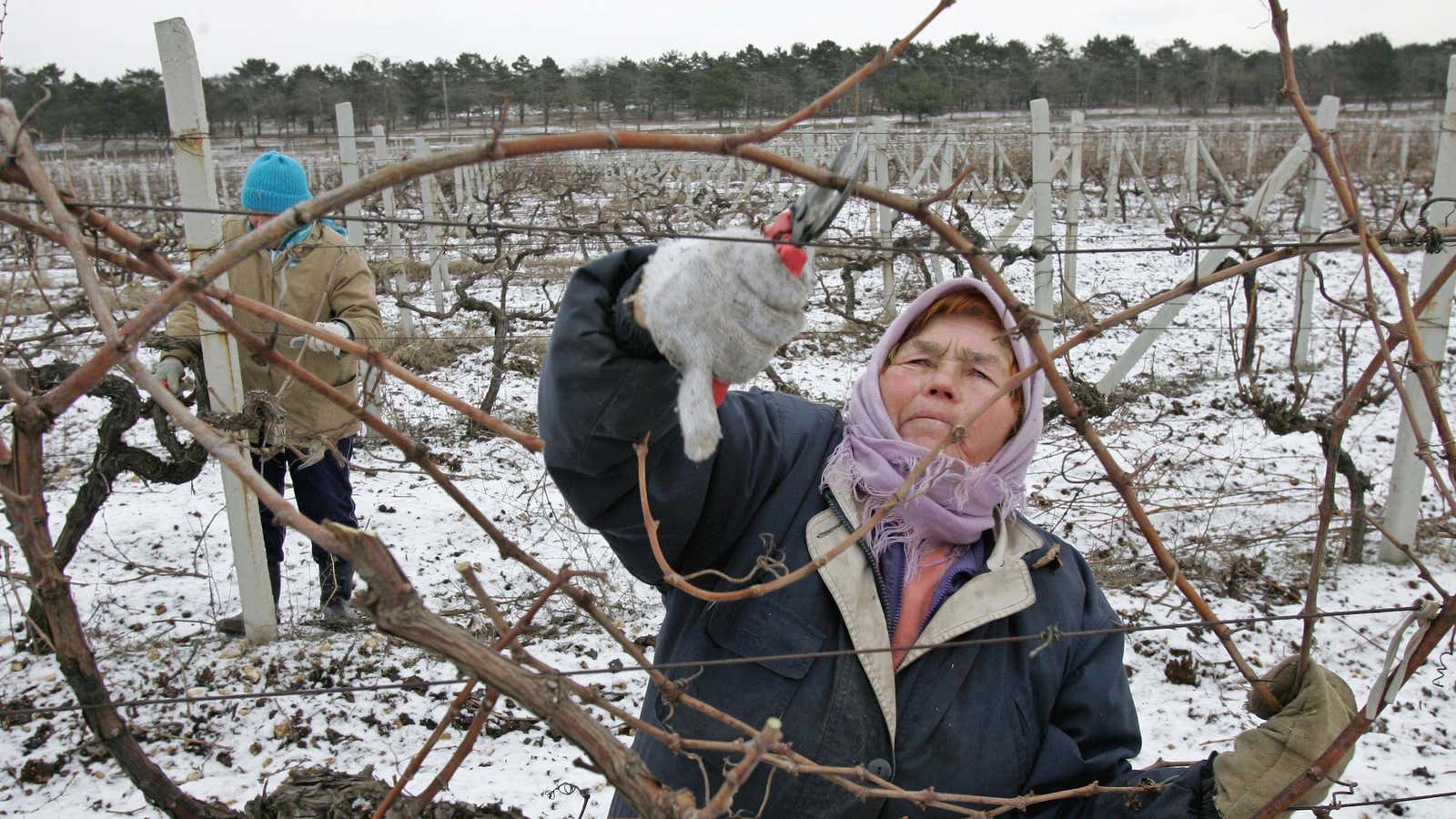This item has been corrected.
Russia may soon create a state corporation to produce materials for winemaking. This is part of its ongoing economic divorce from Europe, and also to benefit Crimea, the newest (and oldest) part of Russia. Russia’s business ombudsman, Boris Titov, wants to produce more ”wine materials” (grapes and bulk wine) on home soil as part of an “import substitution effort,” reports state news agency ITAR-TASS—in other words, an embargo on bringing in produce and products from Western countries that have imposed sanctions on Russia.
Most Russian winemakers have to import the materials to make wine from Spain, Italy, and Chile. “Russian vineyards’ supplies currently cannot cover even a tenth of what is produced in Russia,” Titov told ITAR-TASS. “That is why, we have proposed to establish a state corporation for the purpose of import substitution.” He will submit the proposal for a state-owned wine body—part of a broader strategy to benefit the Crimean winemaking industry—to the Russian government by September.
Crimea, with an average 300 sunny days per year, produces harvests of decent sparkling wine. The region’s winemakers are used to a certain amount of upheaval. “Czar. USSR. Ukraine. Russia,” an employee of the Massandra winery, which was founded by Czar Nicholas II in 1894, told the New York Times, pointing out the periods of the bottles in its collection. Considering that Stalin ordered the evacuation of 60,000 bottles from the collection during the Second World War, they’re not too bothered about going from Ukrainian to Russian sovereignty almost overnight. “Winery workers made no secret of their joy at being back under Russian control, however,” the newspaper reported. “They painted the main forklift in the cellars with the colors of the Russian flag.”
Ukraine—and by extension, Crimea—was once the largest supplier of wines to the Soviet Union, but many vineyards were destroyed by an anti-alcoholism campaign in the Gorbachev years. When Russia annexed Crimea earlier this year, Lina Domatievskaya of the province’s 136-year-old Novy Svet winery welcomed the news. The factory, she said, had been neglected when it was a state-owned property of Ukraine. “We hope that now the Republic of Crimea will be paying more attention to us,” she said. It appears to be doing so.
Correction: An earlier version of this post incorrectly interpreted “wine materials” to mean equipment and casks rather than raw materials.




